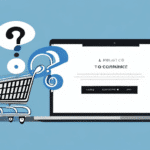Introduction to Hiring a Delivery Service Provider
Whether you're sending a heartfelt gift across the country or managing an e-commerce business, hiring a reliable delivery service is crucial. With a myriad of options available, selecting the right provider can be daunting. This guide offers an in-depth analysis of factors to consider, strategies to find dependable services, negotiation tips, and best practices to ensure your deliveries are efficient and secure.
Identifying Your Delivery Needs
Assessing Item Specifications
Start by evaluating the type and nature of the items you need to deliver. Consider factors such as:
- Fragility: Items like glassware or electronics may require special handling.
- Size and Weight: Larger or heavier items might need freight services rather than standard delivery.
- Temperature Requirements: Perishable goods may need refrigerated transport.
Determining Delivery Speed and Budget
Decide on the urgency of your deliveries. Options typically include:
- Same-Day Delivery: Ideal for urgent shipments but usually costlier.
- Next-Day Delivery: Balances speed and cost effectively.
- Standard Delivery: More affordable for non-urgent items.
Establishing a clear budget helps narrow down service providers that fit your financial parameters.
Finding Reliable Delivery Services
Seeking Recommendations and Reviews
Leverage personal networks by asking friends, family, or business associates for referrals. Additionally, online reviews on platforms like Trustpilot and Customer Contact Week Digital can provide insights into customer satisfaction and service reliability.
Utilizing Professional Networks
Check with local Chambers of Commerce or business associations for recommended providers. Professional networks on LinkedIn can also be valuable for finding reputable delivery services.
Comparing Service Providers
When evaluating potential delivery partners, consider:
- Cost Structures: Understand pricing models, including any hidden fees.
- Service Offerings: Ensure they offer the specific services you need, such as tracking or insurance.
- Geographic Coverage: Confirm that they can deliver to all required locations.
Refer to industry reports from sources like the U.S. Department of Transportation for additional insights on delivery service performance.
Negotiating Pricing and Terms
Establishing Clear Requirements
Before initiating negotiations, outline your delivery needs, including volume, frequency, and any special handling requirements. Clear communication helps in securing accurate quotes and favorable terms.
Seeking Volume Discounts
Providers often offer discounts based on shipment volume or long-term contracts. Don't hesitate to discuss potential savings for increased business commitments.
Clarifying Delivery Timelines
Ensure that the agreed-upon delivery timelines meet your expectations. Discuss options for expedited shipping if necessary, and understand any associated costs.
Best Practices for Packaging and Labeling
Proper Packaging Techniques
Secure packaging is essential to prevent damage during transit. Utilize materials like bubble wrap, packing peanuts, and sturdy boxes to safeguard your items.
- Fragile Items: Use extra padding and clearly mark the package as fragile.
- Perishable Goods: Employ insulated packaging and cooling packs as needed.
Accurate Labeling
Ensure all packages are labeled correctly with:
- Recipient's Address: Double-check for accuracy to avoid delivery issues.
- Return Address: Include a reliable contact address in case of delivery failures.
- Special Instructions: Provide any necessary handling instructions to the delivery personnel.
Tracking and Ensuring Safe Delivery
Utilizing Tracking Services
Most reputable delivery services offer tracking options, allowing you to monitor your package's journey in real-time. This feature enhances transparency and provides assurance regarding the package's status.
Delivery Confirmation
Opt for services that offer delivery confirmation or signature requirements. These options add an extra layer of security by ensuring that the package is received by the intended party.
Handling Delays and Losses
In the event of delays or lost packages, promptly contact the delivery provider. Keep detailed records of all communications, including tracking numbers and receipts, to facilitate resolution.
Providing Feedback and Reviews
Sharing your experiences with delivery service providers helps improve their offerings and assists other customers in making informed decisions. Leave detailed reviews on their websites or platforms like Google Maps and Yelp. Highlight both positive aspects and areas for improvement to provide balanced feedback.
Embracing Technological Advancements in Delivery
Innovations Impacting Delivery Services
Technological advancements such as drones, automated vehicles, and artificial intelligence are revolutionizing the delivery landscape. These innovations promise faster delivery times and increased efficiency but also bring challenges related to safety and privacy.
- Drone Delivery: Offers rapid delivery in urban areas but faces regulatory hurdles.
- Automated Vehicles: Enhance efficiency but require significant infrastructure investment.
Staying informed about these developments ensures that you can leverage new technologies to optimize your delivery needs.
Optimizing Your Delivery Process
Consolidating Shipments
Combine multiple shipments into a single delivery to reduce costs and improve efficiency. This approach minimizes the number of trips and can lead to significant savings.
Implementing Order Management Systems
Utilize online order management systems to streamline your delivery process. These systems facilitate tracking, inventory management, and coordination with delivery providers, reducing the likelihood of errors.
Negotiating Volume Discounts
Discuss volume discounts with your delivery service provider. Committing to higher shipment volumes can lead to lower per-unit costs and better service terms.
Conclusion
Selecting the right delivery service provider is pivotal for ensuring the safe, timely, and cost-effective transportation of your items. By carefully assessing your needs, conducting thorough research, negotiating effectively, and adhering to best practices in packaging and tracking, you can optimize your delivery experience. Additionally, staying abreast of technological advancements and continuously seeking feedback will help you adapt to the evolving delivery landscape, ensuring sustained efficiency and customer satisfaction.






















